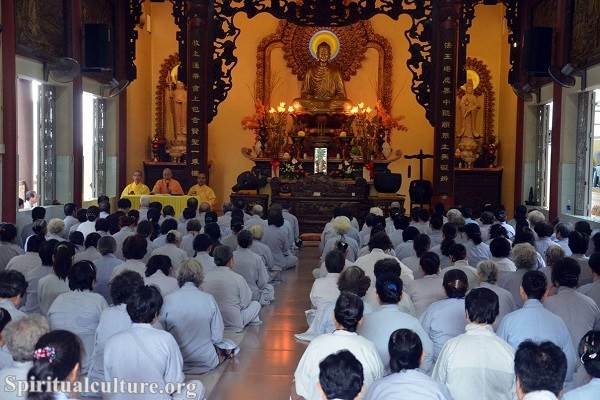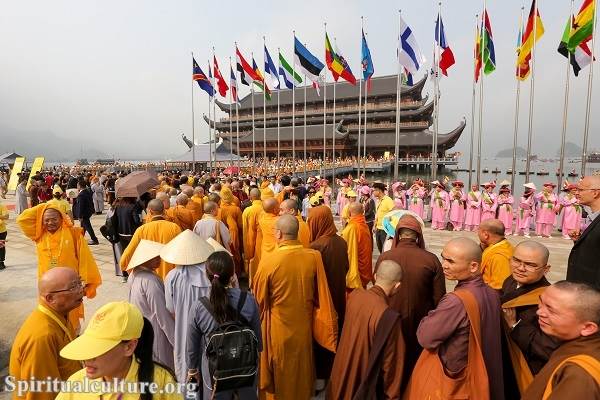Throughout history, human beings have searched the heavens and the heart for ultimate truth. We have built temples and told stories, recited scriptures and offered prayers—all in an effort to understand who we are, why we are here, and what lies beyond the veil of this earthly life. The question “Is there one true religion?” is not merely academic—it is deeply existential, spiritual, and emotional. It speaks to our longing for certainty, for belonging, and for meaning.
As Spiritual Culture, we approach this question not with dogma, but with reverence. We invite you not just to ponder this question intellectually, but to enter into its mystery with humility and wonder. This article will explore the roots of the question, the claims of various religions, and a spiritual way to navigate the search for truth that honors both faith and freedom.
The Question Behind the Question: What Do We Mean by “True”?
Objective Truth vs. Personal Experience
When people ask if there’s “one true religion,” they’re often asking two different things at once:
- Is there an objective, universal truth that only one religion fully captures?
- Or is truth more like a mountain with many paths—different routes leading to the same summit?
The first question seeks exclusivity. The second seeks unity. But perhaps what we really long for is something deeper than either: not just a right religion, but a relationship with what is ultimately real and good.
Truth, in this context, can mean factual correctness. But it can also mean spiritual authenticity—a way of life that leads to wisdom, compassion, and liberation.
The Role of Revelation
Most major religions claim some form of divine revelation. This may be a sacred text, a prophet, or a mystical insight received from beyond the human mind. For example:
- Christianity teaches that Jesus Christ is the Word made flesh, the fullness of God’s truth revealed.
- Islam believes the Quran is the final and perfect revelation from Allah.
- Hinduism embraces many paths (Bhakti, Jnana, Karma, etc.), but sees the Vedas as eternal truths.
- Buddhism does not focus on a creator God, but claims enlightenment as a direct realization of the true nature of reality.
Each claims truth. Each offers transformation. But how do we reconcile them?
Exclusive Claims: Can They All Be Right?
Christianity: “I Am the Way”
One of the most quoted exclusive claims comes from Jesus in the Gospel of John:
“I am the way, the truth, and the life. No one comes to the Father except through me.”
— John 14:6
For many Christians, this is a clear declaration that salvation comes only through Jesus Christ. But even within Christianity, this verse has sparked centuries of interpretation. Some read it literally; others symbolically—as an invitation into a life shaped by the way of Jesus: love, sacrifice, and truth.
Islam: The Final Prophet
In Islam, the belief that Muhammad is the final prophet and the Quran is the complete and unaltered word of God leads to the conviction that other paths, while potentially containing truth, are incomplete or distorted.
Yet the Quran also acknowledges the People of the Book (Jews and Christians) and affirms the dignity of sincere belief:
“Indeed, those who believe, and those who are Jews or Christians or Sabeans—whoever believes in God and the Last Day and does good—will have their reward with their Lord.”
— Quran 2:62
So, is this exclusivity? Or layered inclusivity?
Universalist Views: One Light, Many Lamps
Hinduism and the Many Paths
Hinduism is often cited as one of the most pluralistic religions. The Rig Veda declares:
“Truth is one; the sages call it by many names.”
— Rig Veda 1.164.46
In this view, religions are different expressions of the same divine reality. The Divine is infinite—so how could one religion fully contain it?
Buddhism and the Dharma
Buddhism, while not a theistic religion in the conventional sense, emphasizes that the Dharma (truth) can be realized in many ways. The Buddha himself said:
“Just as the great ocean has one taste, the taste of salt, so too does my teaching have one taste—the taste of liberation.”
— Udana 5.5
Here, the focus is not belief but awakening. What matters is not the label you wear, but whether you are becoming free.
Why the Question Matters
Spiritual Identity and the Search for Meaning
In a world of conflicting truth claims, people often feel torn: If I believe one path is true, am I rejecting the rest? Or worse, am I being unfaithful to my upbringing, my family, my heritage?
This is not just a theological debate—it’s a question of identity and belonging.
And yet, staying in spiritual ambiguity can feel just as unsettling. We long for a solid foundation.
Interfaith Dialogue vs. Relativism
Many modern thinkers advocate interfaith dialogue, seeking shared values and mutual respect. But others worry that this dilutes the truth. They ask: If all religions are equally true, does truth even matter anymore?
Spiritual Culture suggests a third way: not relativism (everything is equally true), and not absolutism (only my way is true), but relational truth—truth that is discovered and deepened in authentic relationship with the Divine and with others.
What Do Sacred Texts Say About Others?
The Hebrew Bible
In the Old Testament, the Israelites are called to worship Yahweh alone, and pagan religions are often condemned. Yet there are surprising moments of openness, such as the story of Ruth the Moabite or Naaman the Syrian, who both find favor with God.
The New Testament
While early Christians proclaimed Jesus as Lord, they also recognized that the Spirit of God could work beyond their boundaries. The Apostle Paul, preaching in Athens, said:
“God is not far from any one of us. For in Him we live and move and have our being.”
— Acts 17:27–28
This acknowledges divine presence outside the visible church.
The Quran
While asserting Islam as the final revelation, the Quran also emphasizes that God guides whom He wills and that human judgment is limited. Final judgment belongs to God alone.
A Spiritual Culture Response: What If the Question Isn’t “Which Is True?” but “How Are You Responding to Truth?”
The Light Within and Without
What if instead of asking, Is there one true religion?, we asked:
- Am I living in alignment with truth, wherever I find it?
- Am I becoming more loving, more honest, more awakened?
- Am I seeking God with my whole heart—or just trying to prove my point?
Many mystics across traditions speak of an inner light—a divine spark, a sacred conscience, a soul-tuning fork that resonates when we encounter truth.
As Rumi wrote:
“The lamps are different, but the Light is the same.”
This is not to flatten all religions into sameness, but to honor the mystery behind them all—the Source.
The Challenge of Conversion and Conviction
When Belief Collides with Belonging
For someone raised in a particular tradition, the idea of exploring another path can feel dangerous—or liberating. Is it betrayal to question your faith? Or is it the beginning of a deeper encounter?
Spiritual Culture honors both the roots and the wings—the inheritance of your faith, and the courage to fly into the unknown.
Is Truth a Destination or a Journey?
The Pilgrim’s Path
Perhaps truth is less like a fortress and more like a pilgrimage. Each step reveals more. Each tradition offers a different lens. And those who seek with sincerity—regardless of the path—may be closer than they realize.
As Jesus said:
“Seek, and you will find.”
— Matthew 7:7
As the Quran echoes:
“And those who strive in Our path—We will surely guide them to Our ways.”
— Quran 29:69
And as the Dhammapada teaches:
“All that we are is the result of what we have thought.”
The journey matters.
Reflect and Reimagine
So—is there one true religion? Spiritual Culture does not offer a definitive answer, but a sacred invitation.
Yes, there may be one Truth—but it is greater than any system can fully express. Yes, there may be one Path—but it walks through many stories, many lands, many hearts. What matters most is not which religion you claim, but whether your life is becoming a light in the world.
Seek the truth—boldly, humbly, with an open heart. Honor your tradition, but don’t fear the mystery. Ask the deeper question: Am I living in love? Am I listening for the Divine? Am I growing in wisdom and grace?
Let this question lead not to division, but to transformation.
Let it lead you home.
— Spiritual Culture



